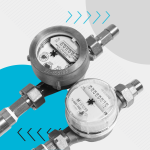
- Could concrete manufacturers re-create the cartel which established prices and shared the market?
- The President of UOKiK has initiated preliminary investigation in the case in question, while UOKiK officers have searched through the premises of six concrete plants.
- A potential collusion may result in higher concrete prices and thus may have adverse impact on the entire economy.
In 2009, the President of UOKiK issued a decision in which he found a collusion of concrete manufacturers. Seven companies with 100 per cent of the market share had divided the market and set prices for more than 11 years, exchanging confidential information for that purpose. After a dozen or so years since the break of the concrete cartel, UOKiK received some signals that the entrepreneurs might have re-created the illegal arrangement. For this reason, the President of UOKiK initiated the preliminary investigation, while UOKiK officials, upon a consent of the court and assisted by the Police, searched the premises of six entities.
– The cartel come-back would be particularly shocking if we consider that concrete is one of the basic construction raw materials necessary for the development of housing, road infrastructure and the entire economy. Lack of competitors and higher concrete prices could have adverse impact on the performance of some strategic projects which are so important for the development of Poland. This requires investigation, we are going to have a very deep look into the case, currently we are reviewing the collected evidence in detail – says the President of UOKiK, Tomasz Chróstny.
What could the cartel consist in?
A suspected arrangement may consist in establishing prices and sharing the market - for example, assigning clients to oneself with the intention of exclusive service which might result in non-rivalry for buyers.
In practice, a buyer might not have been offered any attractive and competitive quotations as concrete plants might have exchanged the information on the planned price increases. In addition, a construction entity could not change its supplier as it had already been a client of a competitive concrete plant.
Where were searches held?
The searched-through entrepreneurs were as follows: Holcim Polska (previously Lafarge), Cemex Polska, Dyckerhoff Polska, Cement Ożarów, Góradżdże Cement and Górażdże Beton. Currently, the data obtained during the searches are being reviewed.
The searched-through entrepreneurs appealed against individual searching activities. They indicated, among other things, that the correspondence and documents developed by members of their management boards acting as attorneys-at-law at the same time should be covered by the protection stipulated in the Act on Competition and Consumer Protection (that is, the Legal Professional Privilege). They are of the opinion that those persons were to be attorneys-at-law who were independent of the entrepreneurs. The aforementioned statements, as being contrary to the jurisprudence, to the intention of the Polish legislator and to the actual wording of the aforementioned provision, were fully challenged by the President of UOKiK who stated that the fact of acting as a member of the management board of a searched-through entrepreneur had obviously deprived a specific person of their feature of being independent from an entrepreneur whom this person managed event when s/he acted as an attorney-at-law.
The Court of First Instance which examined those cases dismissed the appeals of the searched-through persons as unjustified; at the same time, in its rationale, it additionally presented its opinion on the status of members of management boards acting as attorneys-at-law. The decisions of the Court of First Instance are not final.
What is the preliminary investigation?
The investigation procedure is conducted in rem and not against specific businesses. If the evidence collected confirms the suspicions, the President of UOKiK will initiate antitrust proceedings and bring charges against individual entities. An enterprise involved in a competition-restricting agreement faces a fine of up to 10 per cent of its revenue. The managers responsible for entering into the price-fixing arrangement face a fine of up to PLN 2 million.
Severe sanctions can be avoided by taking advantage of the leniency scheme. It offers businesses involved in an illegal agreement and managers responsible for entering into a collusion arrangement an opportunity to reduce a sanction or, in some cases, avoid it altogether. It is intended for those who agree to cooperate with the President of UOKiK as a “crown witness” and provide evidence or information regarding the existence of a prohibited agreement. We encourage the parties interested in the leniency scheme to contact UOKiK. UOKiK staff will answer any questions, including anonymous questions, about the leniency scheme at the phone line set up specifically for that purpose, available by calling the following number: 22 55 60 555.
We also remind you that we operate a programme to obtain information from anonymous whistleblowers. Do you wish to inform UOKiK about competition restricting practices? Visit https://uokik.whiblo.pl/ or scan the QR code below and use the simple form. The system we use guarantees complete anonymity, including from UOKiK itself.
Information for the media
| +48 603 124 154 | |
| biuroprasowe@uokik.gov.pl | |
 | pl. Powstańców Warszawy 1 00-950 Warszawa |



















